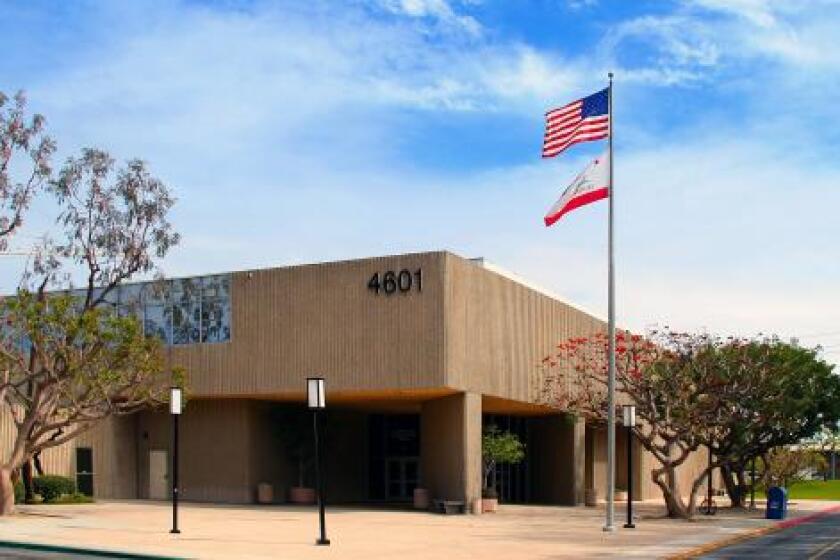Memories of living in Israel
- Share via
MICHELE MARR
Fourteen years ago, when I spent a year living in Israel, I could not
step up into a public bus without a quick, private acknowledgment
that, before my stop, it might be blown up. I would take a seat or
grasp the overhead handrail, close my eyes momentarily and say a
prayer.
Every time I went to a market, a department store or a movie
theater, my handbag or tote, like everyone else’s, was opened and
searched before I could enter the door.
I lived in Tel Aviv in the early days of the Intifada, the
Palestinian uprising in Israel. It was impossible to be too cautious
and for some, it would turn out, it would be impossible to be
cautious enough.
Intifada is an Arabic word that means to wake up abruptly from
sleep, from indifference -- what we might call a rude awakening.
There would be days of quiet then a bomb would blow in a
neighborhood cafe -- maybe the one where, just the afternoon before,
a friend and I had stopped for coffee. Gunfire would break out in old
Jerusalem where I sometimes shopped before walking along the Via
Dolorosa.
My first months in Israel, during the early days of the Intifada,
truly were a rude awakening but it was an awakening that,
paradoxically, also enriched my life. It taught me not to take my
blessings for granted and made me more open-handed in sharing them.
It made me stop to more deeply consider God’s purpose for my life in
this world.
Every year, at least twice, I revisit those lessons anew -- once
at Lent, a season of penitence that precedes Easter for many
Christians, and again at Rosh Hashana and Yom Kippur. Although I am
not Jewish, it was my first passage through the High Holy Days in
Israel that finally brought me to believe in God.
Rosh Hashana, too, is a period of self-examination and repentance.
Except in years like this, when the first day of Rosh Hashana falls
on Shabbat, it begins with the blowing of the shofar, a ram’s horn
instrument that is sounded much like a trumpet.
Rabbi Stephen J. Einstein of Reform Congregation B’nai Tzedek in
Fountain Valley describes the blowing of the shofar as “a call to
conscience ... a wake up call” and the days themselves as “a time to
take a full, personal moral inventory.”
The web site www.chabad.org says, “The sound of the shofar is to
‘awaken’ people to repent and return to G-d.”
It quotes Amos 3:6, “Shall the shofar be blown in a city, and the
people not tremble?” and the Jewish scholar Maimonides, “Awaken, ye
sleepers, from your slumber, and ponder over your deeds; remember
your Creator and go back to Him in penitence...Look well to your
souls and consider your acts; forsake each his evil way and thoughts,
and return to G-d so that He may have mercy upon you!”
Last year, as the High Holy Days were about to begin, Rabbi Aron
David Berkowitz of Congregation Adat Israel in Huntington Beach
reflected, “The experience is a very, very important one. We have to
face God. We think about how our year went, what we did and did not
do [and we] commit to doing what is right.”
In view of the prospect of standing in judgment before God, the 10
days from first day of Rosh Hashana to Yom Kippur are sometimes
called the Days of Awe. They are filled with repentance,
reconciliation, good deeds and prayer, seeking God’s forgiveness and
mercy, for happiness, prosperity and health.
It is a tradition during Rosh Hashana to eat apples dipped in
honey, and other sweet foods, to symbolize the hope for a sweet new
year. Another custom is Tashlich, the symbolic casting of personal
sins into a flowing body of water, preferably one that contains fish,
while reciting biblical verses and psalms.
Yom Kippur, the Day of Atonement, follows the Days of Awe. It is
the holiest day of the Jewish year, a day of total fasting from
before sundown on the day before, until after sunset on Yom Kippur.
No work is allowed and life’s usual pleasures are set aside. Most of
the day is spent in prayer in the synagogue. It is a day of
reconciliation with God.
Recalling the abrupt deaths of so many on Sept. 11, 2001,
Berkowitz said, “It put people on edge. We don’t know when our time
comes either. We just have to make sure while we’re here we are doing
what we are supposed to do.”
We don’t have to be Jewish for that wisdom to apply. Berkowitz’s
words reminded me of words spoken to Fodor by J.R. Tolkien’s sage
Gandalf in “Lord of the Rings.”
“I wish none of this had happened,” Fodor lamented over all the
misery that had flowed from lust for the Ring and its powers.
“So do all that come to see such times,” Gandalf replied. “But
that is not for them to decide. All we have to decide is what to do
with the time that is given to us.”
* MICHELE MARR is a freelance writer from Huntington Beach. She
can be reached at [email protected].
All the latest on Orange County from Orange County.
Get our free TimesOC newsletter.
You may occasionally receive promotional content from the Daily Pilot.



